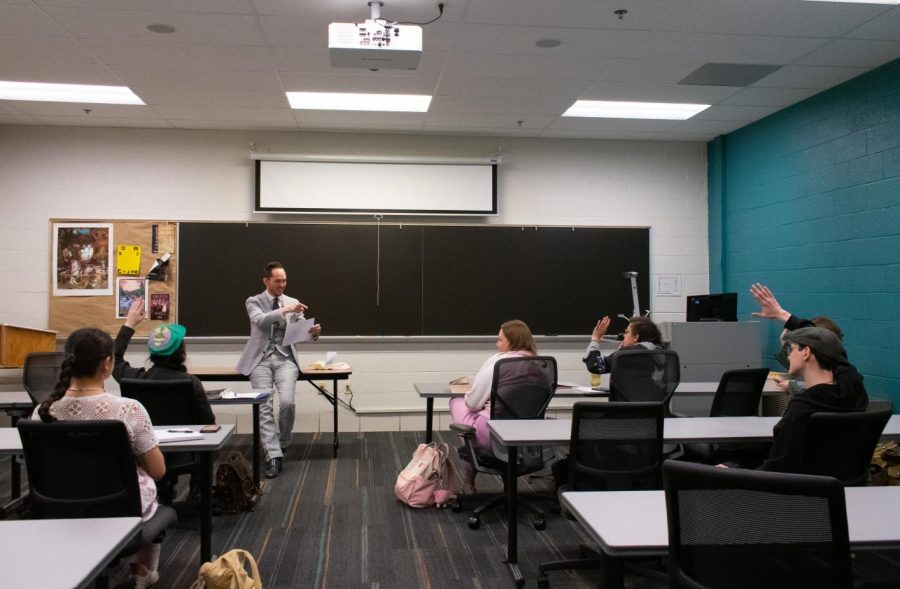School of Liberal Arts increases enrollment
Professor Timothy May teaches an English class.
May 1, 2023
Colleges across the nation are seeing lower enrollment in the humanities, but AACC administrators say humanities programs here remain stable.
In fact, the School of Liberal Arts slightly increased enrollment this year.
3,680 students are enrolled in the School of Liberal Arts in the spring 2023 semester compared with 3,262 students enrolled in the spring 2022 semester.
“We’re in this tricky time with the pandemic and what happened with enrollments nationwide,” Dean of the School of Liberal Arts Alicia Morse said. “Liberal arts actually is up this year, a little bit. I think a lot of that had to do … with traditional-age students coming back to campus, so in the School of Liberal Arts, we see students in those [general education courses].”
The humanities includes subjects like English, history, visual arts and philosophy. Some liberal arts programs, like math or psychology, are not humanities.
According to an article in The New Yorker magazine, English and history enrollment nationwide has dropped by a third over the past decade, and humanities enrollment has fallen by approximately 17%.
Academic Chair of the English Department Wayne Kobylinski said enrollment in the English and creative writing programs has remained mostly stable, but added the English degree is fairly new, so a baseline has not been established.
Approximately 17 to 20 students seek English degrees each semester and 30 to 40 are working toward creative writing degrees, Kobylinski said.
First-year transfer studies student Micah Walker said he is “shocked” over the decline of the humanities.
“I think it’s because people are, like, more towards … getting money rather than [pursuing] their passion,” Walker said. “So they kind of shift towards a more well-paying job.”
English professor Steve Canaday said an education in the humanities can prepare students for a career and teach them critical thinking skills.
“I think that there is a way to balance the idea of preparing students to enter the workforce with other needs that we have as human beings,” Canaday said. “Asking questions about, you know, not just what kind of job can I get, but … what am I doing in this life on this planet? … Of course, it’s nice to earn a high salary and to be able to buy things that you need. But then I think that doesn’t excuse you from asking questions about why you think you need what you need, and, in fact, what it is that you’re hoping to accomplish in this life?”
Morse explained the benefits of a humanities education.
“I think the humanities in the School of Liberal Arts is strong,” Morse said. “I think a liberal arts degree supports all of the core, college-wide competencies that a degree is supposed to embody: communication, problem solving, critical thinking.”












